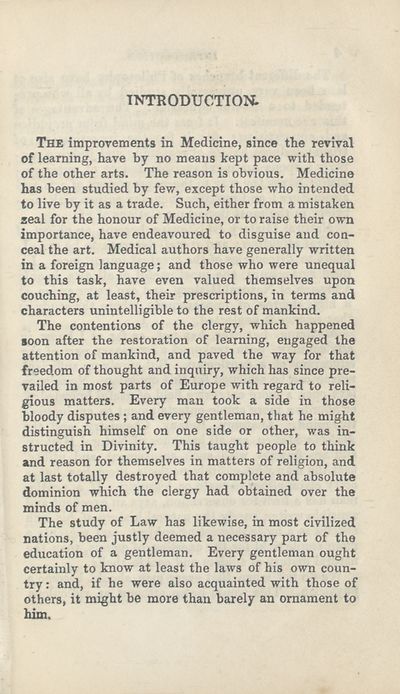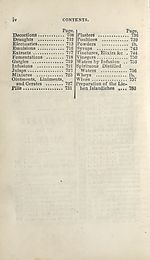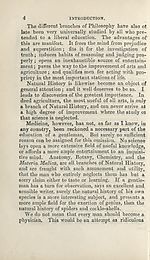Diseases > Domestic medicine
(17)
Download files
Complete book:
Individual page:
Thumbnail gallery: Grid view | List view

INTRODUCTION.
The improvements in Medicine, since the revival
of learning, have by no means kept pace with those
of the other arts. The reason is obvious. Medicine
has been studied by few, except those who intended
to live by it as a trade. Such, either from a mistaken
zeal for the honour of Medicine, or to raise their own
importance, have endeavoured to disguise and con¬
ceal the art. Medical authors have generally written
in a foreign language; and those who were unequal
to this task, have even valued themselves upon
couching, at least, their prescriptions, in terms and
characters unintelligible to the rest of mankind.
The contentions of the clergy, which happened
soon after the restoration of learning, engaged the
attention of mankind, and paved the way for that
freedom of thought and inquiry, which has since pre¬
vailed in most parts of Europe with regard to reli¬
gious matters. Every man took a side in those
bloody disputes ; and every gentleman, that he might
distinguish himself on one side or other, was in¬
structed in Divinity. This taught people to think
and reason for themselves in matters of religion, and
at last totally destroyed that complete and absolute
dominion which the clergy had obtained over the
minds of men.
The study of Law has likewise, in most civilized
nations, been justly deemed a necessary part of the
education of a gentleman. Every gentleman ought
certainly to know at least the laws of his own coun¬
try : and, if he were also acquainted with those of
others, it might be more than barely an ornament to
The improvements in Medicine, since the revival
of learning, have by no means kept pace with those
of the other arts. The reason is obvious. Medicine
has been studied by few, except those who intended
to live by it as a trade. Such, either from a mistaken
zeal for the honour of Medicine, or to raise their own
importance, have endeavoured to disguise and con¬
ceal the art. Medical authors have generally written
in a foreign language; and those who were unequal
to this task, have even valued themselves upon
couching, at least, their prescriptions, in terms and
characters unintelligible to the rest of mankind.
The contentions of the clergy, which happened
soon after the restoration of learning, engaged the
attention of mankind, and paved the way for that
freedom of thought and inquiry, which has since pre¬
vailed in most parts of Europe with regard to reli¬
gious matters. Every man took a side in those
bloody disputes ; and every gentleman, that he might
distinguish himself on one side or other, was in¬
structed in Divinity. This taught people to think
and reason for themselves in matters of religion, and
at last totally destroyed that complete and absolute
dominion which the clergy had obtained over the
minds of men.
The study of Law has likewise, in most civilized
nations, been justly deemed a necessary part of the
education of a gentleman. Every gentleman ought
certainly to know at least the laws of his own coun¬
try : and, if he were also acquainted with those of
others, it might be more than barely an ornament to
Set display mode to:
![]() Universal Viewer |
Universal Viewer | ![]() Mirador |
Large image | Transcription
Mirador |
Large image | Transcription
| Antiquarian books of Scotland > Diseases > Domestic medicine > (17) |
|---|
| Permanent URL | https://digital.nls.uk/119888346 |
|---|
| Description | Thousands of printed books from the Antiquarian Books of Scotland collection which dates from 1641 to the 1980s. The collection consists of 14,800 books which were published in Scotland or have a Scottish connection, e.g. through the author, printer or owner. Subjects covered include sport, education, diseases, adventure, occupations, Jacobites, politics and religion. Among the 29 languages represented are English, Gaelic, Italian, French, Russian and Swedish. |
|---|

